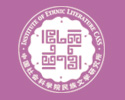姚慧(中国)
藏、蒙、土族《格萨(斯)尔》史诗艺人扎巴老人、琶杰和王永福在口头说唱中共用着一种横纵向结构中单曲体的重复、变异与连缀的结构思维与架构模式。本讲以中国社会科学院民族文学研究所档案库音频资料为分析样本,基于上述曲式结构和类型化的曲调特征,提出由“史诗音乐范式”、“传统曲库”、“范型部件”和“具体曲调”组成的概念体系,同时以藏、蒙、土族《格萨(斯)尔》史诗音乐的横纵向结构为基本出发点,观察分析纵向结构中范型曲调如何在若干次重复中生成变体?横向的整体结构中范型曲调之间又存在着怎样的关联?从而思考在西方分节歌和书面专业音乐创作的思维影响下《格萨(斯)尔》史诗音乐书面记谱中存在的问题以及《格萨(斯)尔》艺人史诗音乐的口头创编方法和史诗音乐的创造力所在。
An Analysis of Epic Musical Patterns: Episode Samples from Gesar/Geser Performed by Grags-pa, Pajai, and Wang Yongfu
Yao, Hui (China)
Within the chanting of the Tibetan, Mongolian, and Tu’s epic Gesar/Geser by Grags-pa, Pajai, and Wang Yongfu, there is a common structural thought and mode characterized by the horizontal and vertical repetition, variation, and connection of the type of a single tune. Taking the audio data from the archive of the Institute of Ethnic Literature under the Chinese Academy of Social Science as a sample for analysis, this lecture puts forward a concept system comprised of "pattern of epic music,” “repertoire of traditional tunes,” “components as the pattern,” and “specific tunes,” based on the previously mentioned musical structure and characteristics. Meanwhile, starting from the horizontal and vertical structure of the Tibetan, Mongolian, and Tu’s epic Gesar/Geser, we can observe and analyze how the variations of the pattern tunes in vertical structure generate after several repetitions and how the pattern tunes are connected in the whole horizontal structure. On this basis, under the influence of western strophic form and composition of professional music in written, the problems for the written notation for epic music of Gesar/Geser, the methods for oral composition of epic music by Gesar/Geser performers, and the source of the creativity for epic music have been taken into consideration.
主讲人简介
姚慧,助理研究员。2008年和2011年毕业于中国艺术研究院,分别获音乐学硕士和艺术学博士学位。现为中国社会科学院民族文学研究所博士后。先后在《中国音乐学》、《中国音乐》、《中国宗教》、《民族艺术》等刊物发表论文20余篇。主持中国博士后科学基金会第54批面上一等资助项目《〈格萨(斯)尔〉史诗音乐范式比较研究——以藏、蒙、土族〈格萨(斯)尔〉为中心》和中国社会科学院民族文学研究所创新工程子项目《蒙藏〈格萨(斯)尔〉史诗音乐录音资料的音乐整理》。参与国家社会科学基金项目《蒙藏诵经音乐比较研究》等课题。曾获中国艺术研究院优秀博士论文奖。
About the Speaker
Yao Hui is an assistant research fellow. She received her master's degree in musicology in 2008 and in 2011 her PhD in Art from the Chinese National Academy of Arts. She is now a postdoctoral fellow at the Institute of Ethnic Literature of the Chinese Academy of Social Sciences. She has published over 20 essays on Musicology in China, Chinese Music, Chinese Religion, and Ethnic Arts amongst others. Moreover, she presided over the project, Comparative Study on the Music Pattern of epic Gesar/Geser: Focusing on Tibetan, Mongolian, and Tu’s Gesar/Geser, which has gained financial support for the 54th general programs from the China Postdoctoral Science Foundation, and the subproject for innovation project of Institute of Ethnic Literature of the Chinese Academy of Social Sciences titled Collating of Record Data of Mongolian and Tibetan Gesar/Geser epics. In addition, she participated in the National Social Science Foundation project regarding Comparative Research on Mongolian and Tibetan Chanting Music, as well as other projects. She was awarded the Outstanding PhD Dissertation of Chinese National Academy of Arts.
